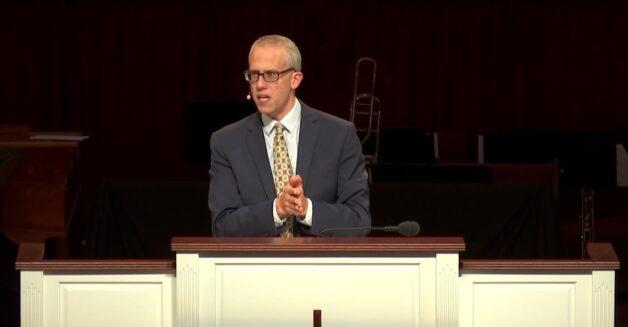The standard sermon ends with several points of application. I have nothing wrong with this. Many of my sermons end with some “now what” points that relate the text to everyday life. But congregations should not expect every sermon to end with three “take home” points. And pastors should not fall into the habit of giving application at the end of every sermon.
I’ve been preaching regularly for over seven years now. I know the routine of preparing sermons. I know the struggles. The introduction and the conclusion are the hardest parts for me, especially the conclusion. Landing the plane is not easy, even for seasoned preachers. Whether it’s by training or instinct, most preachers think about concluding with application. It may be explicit application (“here are three points of application from our text…”) or implicit (“God doesn’t want us to be hearers of the word only, but doers, so in conclusion…”), but most sermons end with some thoughts on what to do as a result of what’s been heard.
This is often appropriate. If I’m preaching on showing hospitality to strangers I may finish with some practical suggestions on how to be more welcoming as a congregation. Strip every sermon of application and you won’t be a very good preacher. But some (many?) sermons should not end with application. Why? Because the point of the text is not always to get you to go do something. I know, application doesn’t have to be in the form of imperatives. Application can be a probing question or something to remember or believe. But I think most preachers revert to imperatives. Especially for conservatives, it just feels better to end a sermon with some strong exhortations. Maybe it’s laziness in preparation. Maybe it’s a dearth of creativity. Maybe it’s a fear of antinomianism. For whatever reason, so many of our sermons end with a stirring call to stop doing these bad things, try these good things, start feeling more joyful, etc. But many texts are not about oughts.
Last week I was preaching on Mark 1:9-11, the story of Jesus’ baptism. I struggled with how to end the sermon. The point of the passage is pretty obvious. Mark wants us to see the unique identity of Jesus Christ. Having announced Jesus as the Son of God in verse 1, Mark then tries to demonstrate in the rest of the prologue why he is the Son of God and what this means. John the Baptist predicts a mightier one to come after him in verses 7-8. Then in the next scene we see Jesus’ baptism, with three attendant signs that point to his unique identity (the heavens opening, the Spirit descending, a voice commending). The point of verses 9-11 is straightforward: Jesus is the new revelation from God, the bringer of the Spirit, the Son of the Father.
So how would you end a sermon like this? You could say “Look at the idols in your hearts. You need to love this Christ more.” Or, “This Jesus is worthy of all our obedience. Go live for him and keep his commandments.” Or, “Why don’t we share the good news about such a great Savior? Tell your neighbors this week about the Son of God.” All of those are fair points and it would not be wrong to connect the text to these thoughts at some point during the sermon. But if we land the plane on these points I fear we are missing the point of the passage. These three verses are here to give a glimpse of the glory of Christ. My fellow preachers and I should not hesitate to land right there. Are we so afraid of not being relevant or prophetic that we can’t end a sermon by exalting in the person of Christ? No application is needed to finish off this sermon. The last word ringing in people’s hears should be something along the lines of, “Behold your God!”
Maybe we just aren’t as passionate about the person and work of Christ as we are about getting in people’s faces (which, trust me, I also do). Or maybe we think people will be bored if they don’t get some good practical advice on their way out the door (and it’s possible they are more eager to hear three points of application than ponder the glory of Christ). Again, I’m not saying no text can end with imperatives. “Repent,” “believe,” “obey” are all biblical injunctions. But we must let the text determine the mood of the sermon and not tack on honey-do lists at the end of every message. Preachers ought to rebuke when necessary, when the text calls for it. But it makes for bad preaching and beat-up congregations when every sermon concludes with exhortation. Sometimes it’s ok to end the sermon by simply telling the people about Jesus.



